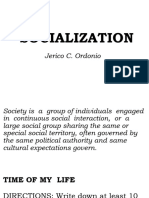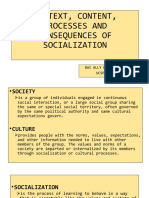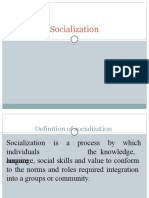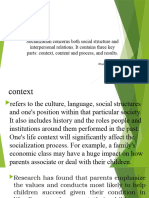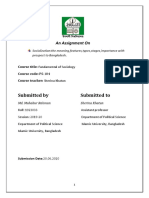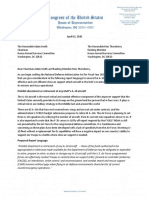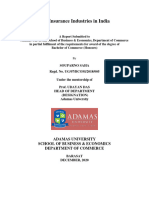0% found this document useful (0 votes)
18 views30 pagesUcsp q1 - Week 5 Module 5 (Socialization)
The document discusses the concept of socialization, defining it as the process through which individuals learn to conform to societal norms and values. It outlines different types of socialization, including primary, secondary, anticipatory, professional, and re-socialization, and emphasizes the importance of context, content, and outcomes in this process. Additionally, it addresses the influence of gender stereotypes and race on socialization, highlighting how these factors shape individual behavior and identity formation.
Uploaded by
Marie Carmela OclaritCopyright
© © All Rights Reserved
We take content rights seriously. If you suspect this is your content, claim it here.
Available Formats
Download as PPTX, PDF, TXT or read online on Scribd
0% found this document useful (0 votes)
18 views30 pagesUcsp q1 - Week 5 Module 5 (Socialization)
The document discusses the concept of socialization, defining it as the process through which individuals learn to conform to societal norms and values. It outlines different types of socialization, including primary, secondary, anticipatory, professional, and re-socialization, and emphasizes the importance of context, content, and outcomes in this process. Additionally, it addresses the influence of gender stereotypes and race on socialization, highlighting how these factors shape individual behavior and identity formation.
Uploaded by
Marie Carmela OclaritCopyright
© © All Rights Reserved
We take content rights seriously. If you suspect this is your content, claim it here.
Available Formats
Download as PPTX, PDF, TXT or read online on Scribd
/ 30







